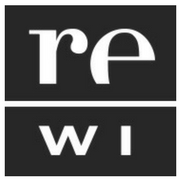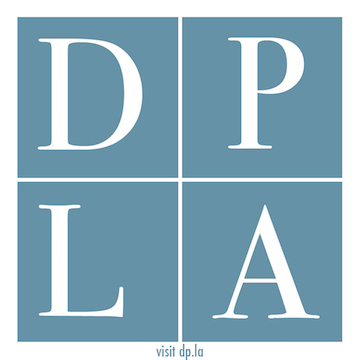The Digital Readiness Community of Practice has been an NHPRC-funded project at Recollection Wisconsin since 2019, and we’ve spent the past two years planning for, growing, learning about and implementing the statewide network of resources and practitioners. The Community of Practice and digital readiness efforts will continue to be a focus of Recollection Wisconsin, though the grant itself wraps up at the end of 2021.
The last time we shared an update on this project, we talked about the Digital Readiness Fairs and the hosts’ experiences helping to facilitate those events. Each ½-day virtual fair was hosted by a Wisconsin library or local history organization and included guest presentations on a range of topics related to digital projects.
Digital Readiness Fairs by the numbers
- 4 virtual fair host sites (Appleton Public Library, Crandon Area Historical Society, Pioneer Village/Barron County Historical Society, and Kenosha County Historical Society)
- 274 total fair registrations
- 181 fair attendees joined live
- 93 received resources asynchronously
- 121 local history or community organizations represented by registrants and speakers
- 45 surveys completed by attendees
- 32 new members of the Community of Practice
- 15 guest presenters on digital readiness topics, Recollection Wisconsin, the Wisconsin Historical Society, and the Community of Practice
- [other data to share? How many repeat attendees? What states were represented among attendees?]
Presentation recordings, slide decks, and resources are publicly available on our Digital Readiness Fairs website.
In planning the Digital Readiness Fairs, we learned a ton about planning and hosting virtual events. These events included pre- and post-fair social gathering times, short and long presentations with multiple guest experts, and informal Q&A time. Taking several breaks, switching up engagement styles, changing presenters, and sharing plenty of links and resources all helped participants remain interested and engaged throughout the event. By summer 2020, most participants had some experience participating in Zoom-based meetings or events and we were able to anticipate questions and connection issues for those who hadn’t. Shout out to our stellar Launch Committee and their contributions, from brainstorming session topics and coordinating guest presenters to providing feedback on the events structure and flow! Organization and communication were key to our success. We held pre-planning meetings, post-Fair debriefs, sent pre- and post-event emails to participants, and documented each task and activity to inform our next event.
And the digital readiness work continues!
This fall, we hit the road both virtually and physically and continued to share digital readiness with a broader audience. In October, we conducted a 1.5 hour digital project planning workshop at the Wisconsin Historical Society Local History and Historic Preservation conference. Participants worked through a few initial questions on the Digital Projects Planning Worksheet, breaking out into groups to discuss their own projects’ initial steps. We all quickly learned that 90 minutes isn’t nearly long enough to wrap our arms around the first steps! But having the worksheet to prompt our thinking on digital projects is a good place to start.
In November, we shared our work at three different events. The Digital Readiness Community of Practice was the subject of a presentation at the National Digital Stewardship Alliance (NDSA) Digital Preservation Conference, along with community partners Kristen Leffelman of the Wisconsin Historical Society, Jennifer Gurske of the Madison Trust for Historic Preservation, and Dustin Mack of the History Museum at the Castle. We also presented at the Southwest Wisconsin Association of Libraries (SWAL) about Recollection Wisconsin, digital readiness, and the digital projects tools freely available through our website. Most recently, we presented at the Wisconsin Library Association (WLA) with Steven Rice of the Door County Historical Museum and Beth Renstrom of the Sturgeon Bay Historical Society Granary Project about the benefits of digital readiness and belonging to a community of practice.
Next year, look for our project and work at the Midwest Archives Conference in a session focused on accessibility in different archives contexts and accessible information on digital readiness.
What’s next?
Several Community of Practice members are currently reviewing a greatly expanded and updated Digital Projects Toolkit. Our Digital Projects Toolkit introduces the basic elements of cultural heritage digitization projects. Each section includes practical tools, guidelines and examples as well as resources for more in-depth learning. Are you planning a digitization project in the next few months? We’re looking for folks to help us by testing and providing feedback on our new and improved Toolkit so let us know if you’d like to try it out on your next digitization initiative.
Our NHPRC grant wraps up in 2022, but our digital readiness community of practice continues to grow. Stay tuned for news on how we plan to implement even more digital readiness in 2022!
This project and the Digital Readiness Fairs are supported by an Archives Collaboratives Implementation Grant from the National Historical Publications and Records Commission (NHPRC), the granting arm of the National Archives.


